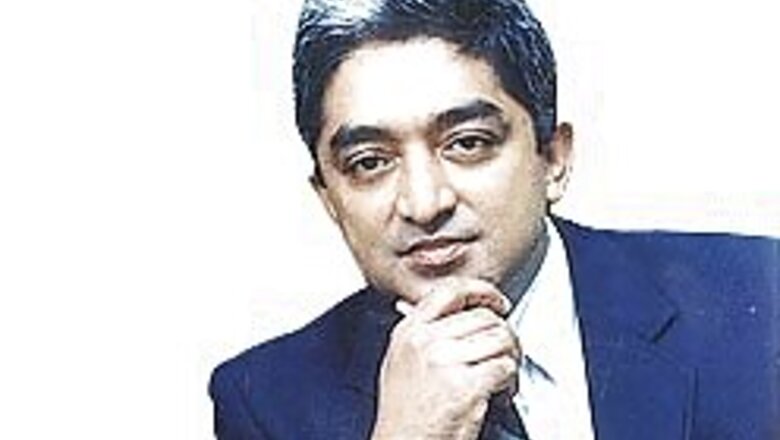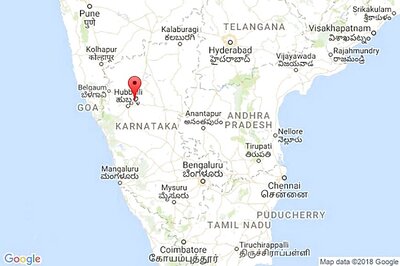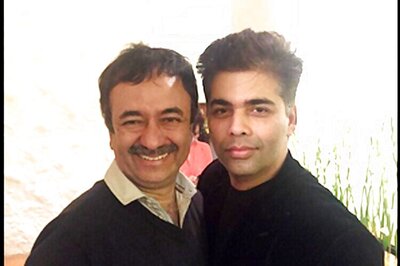
views
If Brand Bangalore has been plagued by civic woes, infrastructure problems and a shadow of terror, political instability has dented Karnataka's overall image in the past year.
What should be the priorities of the new government that comes to power? What steps are needed to restore the brand equity of Karnataka and Bangalore?
In an online chat organised by IBNLive.com, brand expert Harish Bijoor tries to explain the Bangalore story and the branding lessons needed for India's IT capital.
Jay: Hi Harish! Do you think a London-style Mayor, the one elected directly by the people will work for Bangalore? Overcoming political compulsions may be in a limited way...
Harish Bijoor: Jay, our political leadership will not allow this. There is too much at stake!
Rao: Harish did you vote?
Harish Bijoor: Ravi, I did! And am proud of that!
Ravi: Eliminate all forms of linguistic fervour. Keep politicians out of key decisions involving Bangalore's image makeover. That will help.
Harish Bijoor: Ravi, idealistic suggestions. But! We live in a real world! An impure world even! Bye everybody! Was great being with all of you on this chat. I am positive about Brand Bangalore! Stay with me on that!
Jimmy Page: Do you think that there is a feeling in Bangalore, that the locals have been deprived of benefits to which they stake a rightful claim on? Is there any validity to such claims in a globalised world? Though I am sure such attitude will certainly portray Bangalore in a bad light, do you think there is anything that can be done about it? Especially when the politicians try to rouse such sentiments to gain votebanks. Also what kind of effect will incidents such as the recent outrage over an allegedly anti-Kannada poem, have on brand Bangalore or should I say Brand Bengalooru?
Harish Bijoor: I don't believe there has been unfair treatment to the local people. Where there is merit, it has been rewarded. Time to wrap up then. Let's all stay positive about Brand Bengaluru! For a start, at the next Lok Sabha elections atleast, can we hope to see a 90 per cent voting number from Bangalore Urban? Bangaloreans need to walk the talk. Not just talk the talk!
Satish: If Bangalore is accorded "statehood" like Delhi cutting it away from the rest of Karnataka, do you feel that politicians ruling will be more responsible and ensure overall development of the city which would in turn increase Bangalore's brand equity?
Harish Bijoor: Satish, I have been suggesting the status of the Union Territory for Bangalore instead. Back me on this dude!
Kewl: How do you see Bangalore 5 years from now?
Harish Bijoor: Kewl? A beautiful city. A progressvie city. Beautiful Bengaluru! Younger people will call it Bengaluru and older people will call it Bangalore!
R Arun Kumar: Hai Harish, very good evening. According to you what can be done for the slow running infrastructure project completion like the NICE road etc, so that Bangalore traffic jams can be reduced. I think even if a new government comes, these problems are not going to be solved?
Harish Bijoor: Arun, I believe decisive answers are necessary. Decisive actions. We need strong Ombudsmen for this city. A strong Sheriff even! We need city-commitment! I believe this can be done with strong PPP movements. We will drive for this as a group of committed citizens of this city. Let the new government form!
Rajesh M S: Hi Harish, I need to understand with respect to comparing Bangalore with other places. During S. M Krishna's tenure of Chief Minister, he was aiming at making Bangalore like Singapore. Now in this election I am hearing from BJP, Bangalore and Karnataka, need development like Gujarat. Also I came to know, Karnataka was the second favoured destination for investments during 2003-2004, but now it has slipped to seventh place. How about Gujarat regarding preference for investments now and before, which should be our model for development i.e. Gujarat or Singapore? Is Bangalore a local brand or global brand to compare with?
PAGE_BREAK
Harish Bijoor: Rajesh, We are a global city in terms of who we interact with and what we export to how many countries. Bulk of it is IT and ITES! Therefore I would prefer to compare ourselves with a global benchmark that is long-standing than a short term bench-mark like Gujarat. Being a Gujarat will hold us in good stead for two years. Being a Shanghai might hold us longer!
Pavan: What are your thoughts now that the HAL airport is to be closed by the end of this month? With connectivity issues still prevalent for the new airport, how good/bad an image would this send out to the world at large about Bangalore?
Harish Bijoor: Pavan, I have been a votary to close the old HAL airport. Possibly one of a few in this city. I live literally next to the old HAL Airport. However, I have not allowed my private sense of convenience or inconvenience clutter my viewpoint. My view is clear. We have signed a licence agreement with the BIAL. This states clearly that the old HAL Airport will not compete with the new. I do believe we need to keep our word. The old HAL Airport is totally messy. The new airport will set the image of Brand Bengaluru! An airport is a good visiting card of the city. You arrive here. You leave from here. Impressions are made here. When you leave as well, you carry final impressions from here. This is a positive development for Brand Bangalore! Let's welcome the new airport for sure! Though I personally have to travel 36 kilometers to it....and I will have to be on the road longer!
Gururaj: Harish, I am presently a Sr VP with Reliance before which I headed a company called Flextronics in India. I was forced to make a decision some years ago to move our company out of Bangalore to Chennai where we set up an SEZ. My experience tells me that the key issue is political leadership and vision. That’s been a zero (or maybe negative contribution) in Bangalore over last few years.
Harish Bijoor: Guru, Sadly the most macro-fabric of our business environment is the government even today. However, progressively the role of governments in controlling business environments has been lessening over the last two decades. What you did, many have done -- to the detriment of Bangalore city. Our political leaders have been responsible for this. I am however hopeful of more and more de-control which will insulate private businesses gradually. Will take time though. In the meanwhile good business will flee out of Bangalore. As it has in the past.
Badami: Dear Mr. Bijoor, do you think we should stop cribbing about the infrastructure and bring about changes ourselves? For example, ensure that the New Airport road be improved, Drainage and water facilities be improved instead of filing PILs against the new airport and wasting our time only on that.
Harish Bijoor: Mr.Badami, I totally, totally agree. We need to be progressive and not regressive in our mindset. Most PILs such as these waste time and create a culture of confusion.
Pragati: The following things are required at the basic level: To start with, improve infrastructure, public transport, better traffic rules. Just making one-ways is not going to solve the problems.
Harish Bijoor: Pragati, I agree. One-ways are not a solution. We need to plan public transportation systems that are seamless. We don't need wider roads. We need fewer wheels on them. A reliable public transportation system will solve the issue. There is a Parkinson's at play with city roads. More the roads, more the vehicles. We need less private vehicles on the roads and more public sense. Namma Metro is one such solution. One ways and flyovers are passé! Sadly Bangalore holds the record of having a unique traffic signal on one of its flyovers! Must be a first in the world!
PAGE_BREAK
Roopa: How can the infrastructure be improved? It is high time that the people start Gandhgiri like utilising car pooling, using public transport.
Harish Bijoor: Roopa, Yes, it has to be a people's movement. Cycling to work. Using a car only when with a family of four, and not using it while driving alone! Being responsible about everything around us! Lane discipline! All these are a people's movement. Sadly, the people's movement's in the city are the movement of a set of people who are self-actualising and are sitting at the top of Maslow's hierarchy of needs. A small niche of people. This does not work. Only when a people's movement is spearheaded by folks at the bottom of the pyramid, do such movements work. Otherwise these are fashionable statements made by a minority at the top of the heap! We need to set this right.
Madhava: Why does the govt not concentrate on tier-2 cities and improve infrastructure in each and every state in India? So that migration can be controlled in big cities like B'lore or Delhi, such as in developed countries in Europe or U.S. I believe this is the only solution to over come infrastructure bottleneck.
Harish Bijoor: Madhava, good idea. But it’s all in the mindset of a people. The moment a megapolis like Bangalore develops with all its allure, people don't like to move and leave. Everyone wants a piece of the cake. Everyone buys up land. Everyone wants to own a flat. And no one wants to move to the non-happening and just about happening centres such as Mysore and Managalore and Hubli and Dharwad. Sadly, even those who do their basic studies in the smaller Tier-2 towns and who come to Bangalore for their higher education, don't want to go back This is the tragedy at hand!
Srivathsa: What is your personal opinion on the various infrastructure projects being taken up keeping in mind short-term solutions?
Harish Bijoor: Most projects have been planned with short-sighted goals of solving issues that will come up 3-5 years from now. Take traffic planning at the new airport, traffic flow estimation of the Magic Box underpasses in the city. All done as short-term fixes to take care of the next three years. I think we need to think long-term. We need to plan for the future of our children and not for the future of our grand-parents!
Hemanth: In order to improve the brand name, we need the city to be clean. In your experience which country do you think has spread this awareness among its citizens effectively? What can be done to make citizens realise how important is it to keep the city clean. Any innovative ideas that can be inspired from other nations?
Harish Bijoor: Singapore is called a 'fine' city! The culture of fines for everything that a citizen does wrong there works very well! I do believe in the beginning, it is punitive action such as this that will help. Take for example the seat belt issue in cars. Most cars have seat belts. No one uses them till a fine for not using it is imposed and enforced. Today, there is no checking, but loads of people use seat belts by rote!
Girish: Harsh, good discussion. The biggest contributors to the infrastructure growth are the builders - are there any regulations that will help improve the current situation. e.g. make rainwater harvesting compulsory, minimum x% of backup power should be from a renewable energy source etc?
Harish Bijoor: Girish, The regulations are in place on the builders. Problem however is its implementation and enforcement. A certain degree of corruption exists in this sector which needs to be sorted out. The will of good political leadership is necessary here. I am however not hopeful on this count looking at the candidates standing for the Assembly elections in Karnataka this year. A whole host of builders are candidates themselves from national parties. Ouch!
Sandhya: Do you think Bangalore has a chance to match up to the world standards of IT hubs in the US and Europe? An unbiased comment would be much appreciated. Bad roads, messy airport(s), political instability -- enough to drive away investment, don't you think so?
Harish Bijoor: Sandhya, Totally unbiased reply. At the moment you are right. We have problems. But hopefully with a good government in place shortly after May 25, we should make amends. At this point of time we are driving investments away. What SM Krishna did for this city since 1999 has been undone by successive governments. Sad!
Sundaram: What effect of Hokenakkal in the election?
Harish Bijoor: Hogenekkal is thankfully a non-issue in the current election. Once it is wrapped up with the results on May 25, expect more on this front. The new government will need to deal with this.
Gautam Joshi: I think to boost Brand Bangalore, Karnataka needs a CM like Mr. Modi. I want to ask you who could be the Mr. Modi of Karnataka?
PAGE_BREAK
Harish Bijoor: Gautam, I do believe we need to see a CM who is decisive. A CM who gets things going, a CM who focuses on city governance as well. Most of the time, when a State has a CM, the CM is normally besotted with the rest of the State as opposed to the capital city. Vote bank politics normally outweighs the importance given to a city versus its moffussil centres. I do believe if Brand Bangalore has to go ahead, we need to get Bangalore the status of a Union Territory with an administration structure of its own. I wouldn't want to put names here, but there will be many befitting candidates.
Ravi: Would it be a good idea to get real harsh on traffic offenders? They are the ones impacting Bangalore’s image as a global city.
Harish Bijoor: Ravi, Yes, the traffic police in this city need to take a leaf out of the Mumbai Police. Lane discipline is absolutely missing here. We have electronic eyes on our streets being tested just now. 40 of them have been installed on a pilot basis. I hope this helps. The image of a city is a function of many things. Traffic and traffic sense is one component for sure.
Sridhar Venkatesh: Nice to interact once again. We recently heard about Mr. Gowda saying that we need 30% reservation in IT sector and then it was water politics with Tamil Nadu being played in Bangalore. Is Bangalore going the Shiv Sena way? What can be a counter to such petty politics to boost Bangalore's equity?
Harish Bijoor: Sridhar, Good to catch you here. Every city has its business and its politics. Politicians pushed to the wall normally come out with jingoistic statements to re-invent themselves. Acute localization and religion are two good tools. Since religion is bit of a taboo arena, the politician is quick to adopt the localization issue. Raj Thackeray showed us that it can be done in Mumbai and Pune and the very same trends are out here in Bangalore. I do believe the people of this state will see through all this and reject such forces. My hopes on this are rather low though. Particularly since most right thinking urban folk just don't go and vote. Bangalore Urban saw only 44% of its people going to the polling booth this year! Just three days ago! Sad! A good counter is a citizen's movement that is grass-root and that shouts back at such jingoism. We have a couple of bodies in Bangalore doing such work as of now.
Girish Badrinarayanan: Steps to retain Brand Bangalore should not only revolve around IT and BT sectors, but, also the heritage that city the owns. In other words, widening the city' green space and efficient waste disposal is the need of the hour. These are the handicaps that needs support and not IT and BT, which are self-reliant in themselves.
Harish Bijoor: Girish, I agree totally. Bangalore is not only about IT and BT. It is more. It is only 4% IT-BT and 96% everything else, in terms of population numbers. I do believe waste management and new-age waste disposal systems are a must if we are to progress in the millennium ahead of us. Garbage and its efficient handling will be the biggest issue this city will face. We are yet to invest in the eco-friendly way of handling this crisis ahead of us. Malaysia has invested wisely in this terrain just as lesser populated countries in the West have!
Vicky: What according to you is the best way for the image makeover of Bangalore...from worst roads, bad infrastructure, ranks 4th in India in corruption, etc to a better place to live and work?
Harish Bijoor: Vicky, Good one. I do believe image make-overs need to begin bottom-up. I do believe we need to get going as a people who look into ourselves and our attitude to the city of Bangalore. We need a people's movement for make-over and not a government's movement. We need to get going with plans to improve our traffic sense for a start. In this city traffic sense is inversely proportional to education. The more educated we are the less we care. We need to right these wrongs for a start in every arena of public life. And slowly but surely, things will fall into place.

















Comments
0 comment